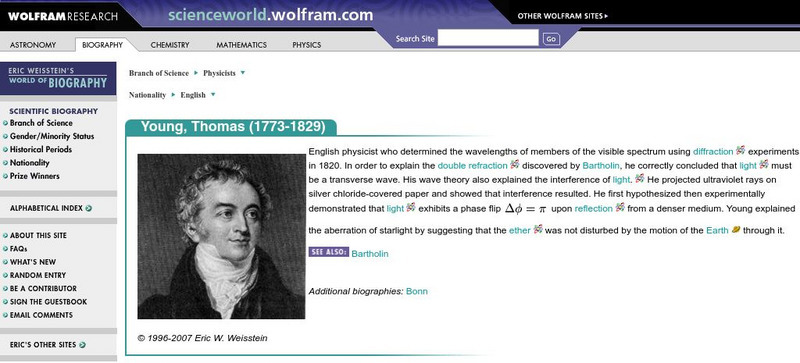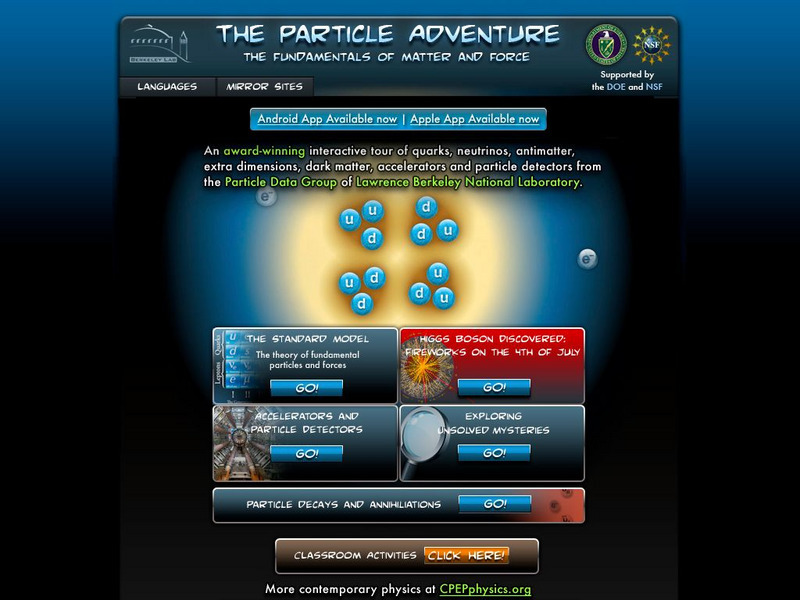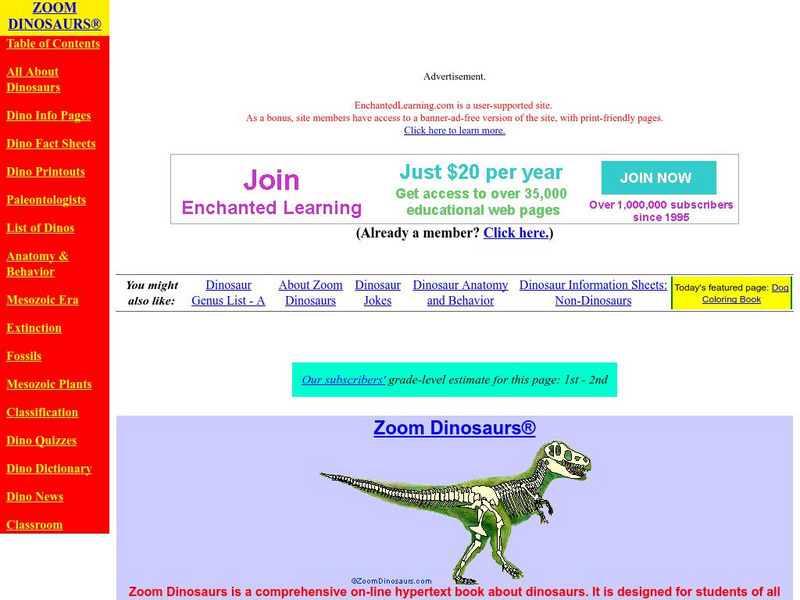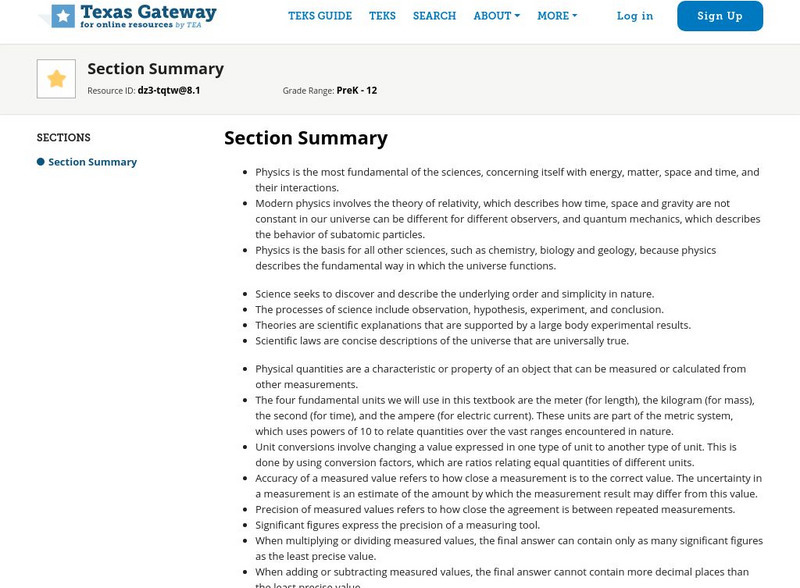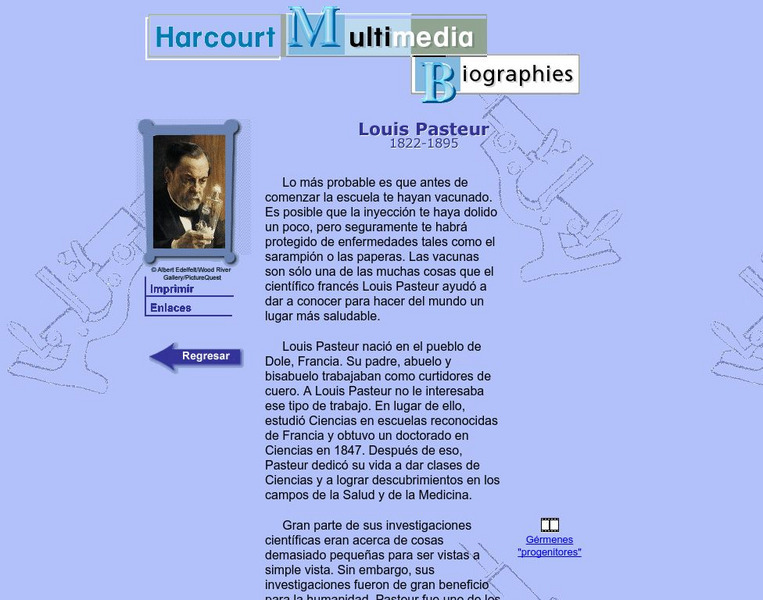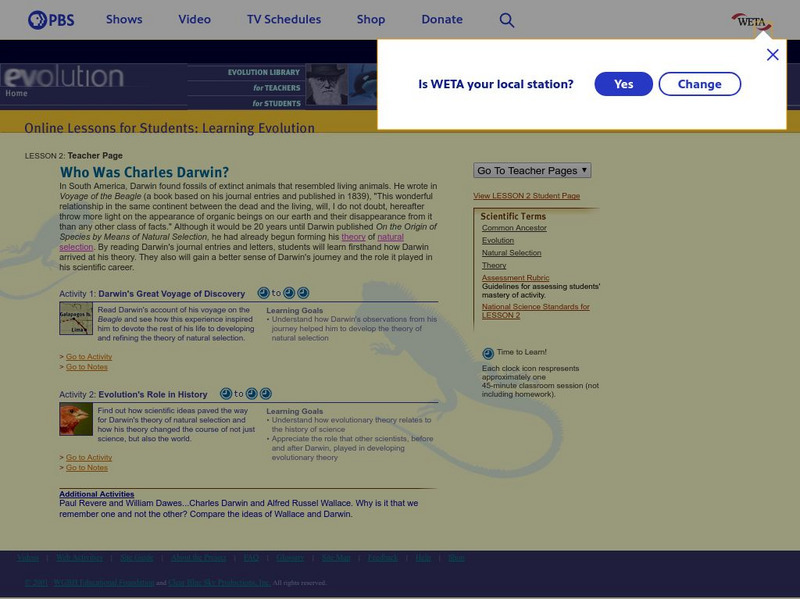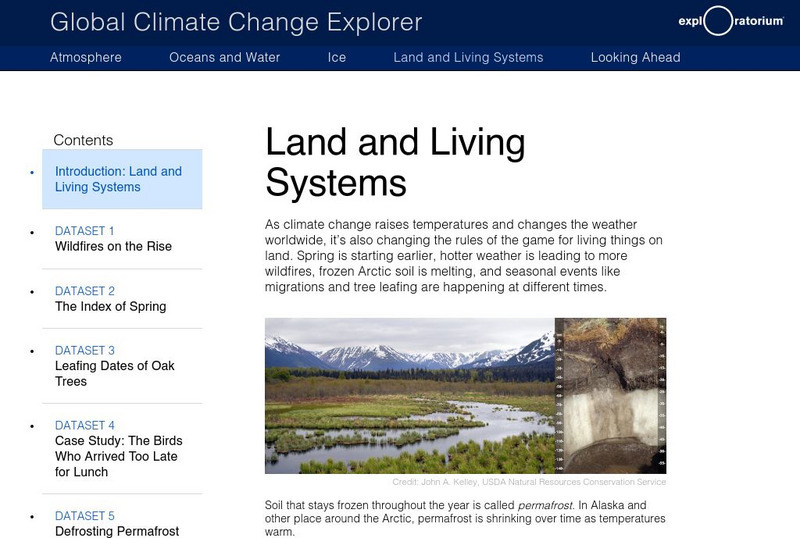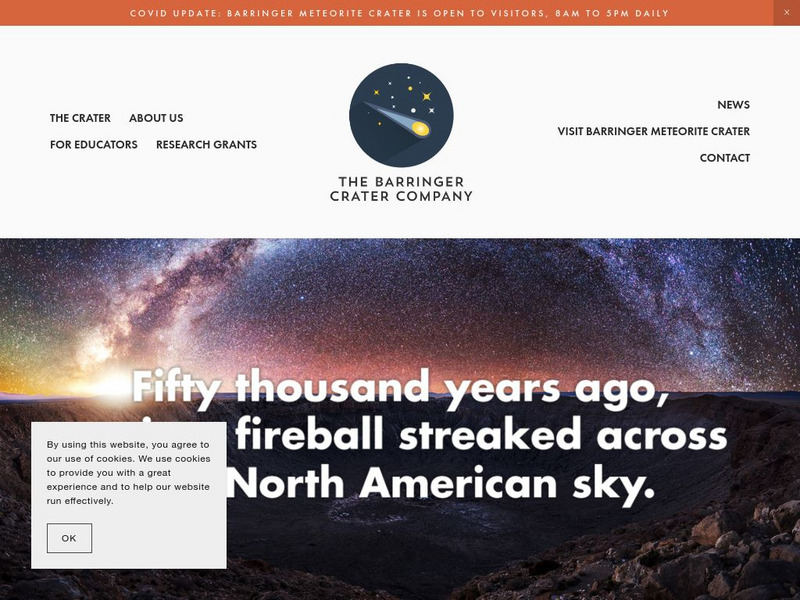Hi, what do you want to do?
Wolfram Research
Wolfram Science World: Young, Thomas
This site from ScienceWorld provides a very short but factual biographical sketch of Thomas Young (1773-1829 CE) and describes his most notable scientific discoveries and contributions. Links are also provided throughout for additional...
Harvard University
Harvard Smithsonian: Everyday Classroom Tools
The focus of this series of lessons is to engage students in an exploration of the world around them. The emphasis is on inquiry as students learn about the earth, sun, light, shapes and more.
Lawrence Berkeley National Laboratory
Berkeley Lab: The Particle Adventure
Visit this site for an interactive tour of the atom and all aspects of particle physics. View the animations available with almost every description on this site. A great place for the fundamentals of particles and forces including a...
PBS
Pbs Learning Media: What Killed the Dinosaurs?
This Evolution Web feature explores how evidence can support a variety of hypotheses surrounding the mystery behind the extinction of the dinosaurs.
Hunkins Experiments
Hunkin's Experiments
This amazing website provides access to 200 exciting experiments from cartoonist, broadcaster, and engineer, Tim Hunkin. Each experiment is categorized and illustrated.
OpenStax
Open Stax: Physics: An Introduction
This interactive lesson introduces students to the branch of science known as physics.
National High Magnetic Field Laboratory
Magnet Academy: Claude Shannon
Claude Shannon was a mathematician and electrical engineer whose work underlies modern information theory and helped instigate the digital revolution. He was the first person to recognize how Boolean algebra could be used to great...
BBC
Bbc News: Lost Society Tore Itself Apart (2005)
Scientific research on Andean ice cores indicate that the Moche civilization survived climatic storms. New theory for why civilization ended is that clans turned on each other for scarce resources.
Other
Saudi Aramco World: Rediscovering Arabic Science
For most westerners, and indeed for many Arabs, the spectacular achievements of Arabic language science from the eighth through the 16th centuries come as a startling discovery, as if an unknown continent had suddenly appeared on the...
National High Magnetic Field Laboratory
Magnet Academy: Peter Debye
Peter Debye carried out pioneering studies of molecular dipole moments, formulated theories of magnetic cooling and of electrolytic dissociation, and developed an X-ray diffraction technique for use with powdered, rather than...
Famous Scientists
Famous Scientists: Luis Alvarez
Learn more about the life of the scientist that proposed the theory of mass extinction of the dinosaurs due to an asteroid or comet in this article. Read all about the life and scientific discoveries of Luis Alvarez.
Khan Academy
Khan Academy: Nicolaus Copernicus
Learn about the life of the man who set off a scientific revolution with his sun centered theory in this article that details the biography of Nicolaus Copernicus.
Enchanted Learning
Enchanted Learning: Zoom Dinosaurs
Zoom Dinosaurs is a comprehensive on-line hypertext book about dinosaurs. It is designed for students of all ages and levels of comprehension. It has an easy-to-use structure that allows readers to start at a basic level on each topic,...
PBS
Pbs Learning Media: Bang
Students are asked to generate questions about fireworks that could be answered through scientifice evaluation.
Texas Education Agency
Texas Gateway: What Is Physics?: Section Summary
This is a summary of the most important takeaway ideas from Chapter 1: What is Physics? from the TEA Physics text.
Houghton Mifflin Harcourt
Harcourt: Biographies: Louis Pasteur
An introduction to the life and achievements of the great scientist Louis Pasteur. (In Spanish)
University of California
University of California Museum of Paleontology: Fossil Evidence
Understanding Evolution provides evidence for evolution using fossils. There are also links to lesson plans.
Nobel Media AB
The Nobel Prize: The Nobel Prize in Physiology or Medicine 1933
At this site from The Nobel Foundation you can read about Thomas Hunt Morgan, the scientist who won the Nobel Prize in Medicine "for his discoveries concerning the role played by the chromosome in heredity." This website is organized...
PBS
Pbs Teachers: Who Was Charles Darwin?
Explore the scientific ideas that paved the way for Charles Darwin's theory of natural selection. Map and research his scientific journeys and explain how his theory changed the course of science and the world.
Exploratorium
Exploratorium: Global Climate Change: Atmosphere
Use this site to explore real scientific data relating to the atmosphere. With this information you can gather evidence, test theories, and come to conclusions. Click on the data examples to view a full scale version.
Exploratorium
Exploratorium: Global Climate Change: Biosphere
Explore real scientific data relating to the biosphere. With this information, you can gather evidence, test theories, and come to conclusions. Click on the data examples to view a full-scale version.
Children's Museum
Dinosphere: Dino Profiles: Meet Baby Louie
What do paleontologist's learn from a dinosaur fossil named "Baby Louie", a baby carnivorous dinosaur from an unknown species of Oviraptors? This site offers fossil photos, a taxonomy chart, and some theories as to what happened to Baby...
Other
The Barringer Meterorite Crater
The origin of the Barringer Meteorite Crater was the basis for heated debate. Learn how the scientific community eventually accepted the impact theory of the crater's origin. Check out this website to view slideshows and history.
Exploratorium
Exploratorium: Global Climate Change: Hydrosphere
Use this site to explore real scientific data relating to the hydrosphere. With this information you can gather evidence, test theories, and come to conclusions. Click on the data examples to view a full scale version.





